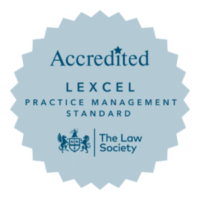Employment: MARS Settlement Agreements: What they are, and what to do if you agree to one.
01st Sep 2025
MARS stands for ‘Mutually Agreed Resignation Scheme’. As the name may suggest, it is a voluntary employment severance scheme which some employers (such as the NHS, and other public sectors) may offer employees from time to time.
The scheme’s purpose is to offer flexibility to employers when they are faced with challenging circumstances, such as financial troubles or restructuring of the workforce.
What is the purpose of a MARS?
The purpose of a MARS is that, in exchange for an employee leaving voluntarily, and agreeing to the terms of the MARS (which will almost certainly always include clauses which prevent the employee from suing the employer in several scenarios, including unfair dismissal), the employer will give the employee a severance payment.
The severance payment for MARS Settlement Agreements is often calculated by way of the employer’s MARS Guidance. For example, the NHS will calculate a severance payment based on cross referencing your number of years’ service against their table formula of how many months’ of pay you should receive by way of severance payment under the scheme.
Can I be forced to apply for the MARS?
No. As the name suggests, both the employee and the employer must be agreeable to proceeding under the terms of the MARS. It is up to you whether they apply to the scheme or not.
If an employee has been considering a career change, or retirement, a MARS might be a good way for an employee to exit from their role.
If you do not apply for a MARS, employment will continue as normal, but if there are issue of restructure or downsizing, you may find yourself being re-deployed to other Trusts, Councils, or regions of the country if it is a downsizing situation.
I have been offered a MARS, what do I do now?
Your employer should advise its employees of a MARS being launched, and they will likely outline whether there is any criteria to be eligible to apply (e.g. certain departments, people or contracts). In addition, your employer should inform you how much you would receive as a severance or termination payment if your application to the MARS was successful.
Once it has been confirmed by your employer that you are eligible, and you have decided you want to leave your employment, you can apply to your employer’s MARS. This may be by way of formal application form, or as simple as sending the employer contact dealing with the MARS an email confirming you would like to proceed.
What do I do once I have received my draft MARS Settlement Agreement?
Often MARS Settlement Agreements are quite heavily legally worded, which can make the head of anyone outside the legal profession spin. So once you have received the draft MARS, you are legally required to take legal advice on the Settlement Agreement terms.
The purpose of having to obtain legal advice before the Agreement can come into force, is to have a Lawyer or Solicitor talk you through the settlement agreement, and what it means for you in terms of rights you will be waiving, and restrictions you will be agreeing, in return for the settlement payment. Even having someone to check the severance payment is correct can be very useful.
We are proud to offer advice in a way that suits you, with a friendly straight-forward approach, and a designated Lawyer to support you every step of the way.
If you have a MARS Settlement Agreement, why not head over to our easy-fill form to get things started:
Settlement Agreement Questionnaire
Who pays for the advice?
MARS Settlement Agreements will usually state how much your employer is willing to pay toward the legal fees associated advice.
Often this will cover our fixed-fees for advice, however where your employer is not able to meet our fees, we will let you know if you may have to contribute towards the fees, at which point you are most welcome to explore other options if this scenario arises.
We pride ourselves on providing complete cost-transparency with no nasty surprises. Putting you in control.
I have had advice, and I agree to the terms. What next?
When you are in agreement and understand the terms of the MARS, your employer may want you to sign it, or we can send your Agreement to you by Docusign for digital signature and return. We will then provide our Adviser Certificate to your employer to complete the employee obligation to obtain advice. Thereafter the employer will sign the MARS and provide you with a copy, and will put everything in place ready for your agreed termination date and severance payment to come into effect.
Is a MARS the same as a voluntary or compulsory redundancy?
There is no need for there to be a redundancy situation for a MARS to be offered, though they may be used instead of or as well as requests for voluntary redundancies.
The difference between a MARS and a redundancy is that for redundancy, your employer would need to identify that a redundancy situation exists. This then leads to a redundancy consultation process with some or all staff that will be affected. Once the staff at risk of redundancy are identified, voluntary redundancy would be offered in hopes that enough staff would volunteer to leave. If they do not, then this is where compulsory redundancy comes in.
The MARS process is often a cost and time effective method of reducing staffing numbers where the need is identified.
Can I ask my employer for a MARS?
Unfortunately you cannot apply for a MARS if your employer isn’t offering one.
Ultimately, MARS Settlement Agreements represent a great opportunity to make a fresh start or move on, but only if you are ready to do so. If you refuse a MARS or you do not agree with the terms, then your employment will continue.
How we can help you with your MARS Settlement Agreement
We provide advice in a way to suit you, whether you’d like a letter by email, a telephone call or a face to face meeting.
Start your process with us by completing our easy-fill form. It’s as simple as click, type, done.
Settlement Agreement Questionnaire
Or you are welcome to call us, email us or contact us through our website if you would like further information or a general chat.
Related news
Articles you may find useful
Like this article? Sign up for our regular newsletters






